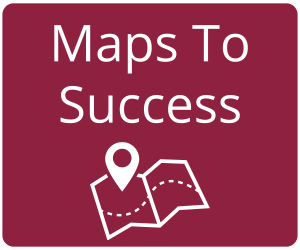Are you naturally curious? A problem solver? Do you want a rewarding career addressing social, environmental, and civic challenges in a technologically driven world? Come study science, engineering, and math at Laney College. Let’s build the future together!
Departments Under This Area
Mathematics
Biological Sciences
Chemistry
Physics
Engineering
Astronomy
Geology
Geography
Anthropology
Recommended First Term Classes
Course meets a CSU or IGETC general education requirement
Math
MATH 1* Pre-Calculus OR
MATH 1* plus MATH 215 Pre-Calculous with Support
English
ENGL 1A* Reading and Composition OR
ENGL 1AS* Reading and Composition with Support
Explorer Course
Choose one
ASTRO 10*
BIOL 10*
BIOL 24*
BIOL 78
CHEM 30A*
ENGIN 10
GEOG 1*
PHYS 10*
Description of Explorer Courses
Astronomy
ASTRO 10: Descriptive Astronomy
Have you ever looked into the night sky, gazed into its depths? The night sky on a clear night away from city lights is alight with billions and billions of stars. Have you ever asked yourself, “What is out there?” In Astronomy, we study everything in the universe beyond our atmosphere: our Sun, our Moon, the planets, and other celestial bodies and beyond, near and distant events like eclipses and stars being born, and objects so far away they can be seen only through telescopes and other instruments. Ancient people studied the night sky to find meaning in their world; like them, we seek to understand where we are going, and how chemistry, physics, and math play an important role in this study. You’ll learn this and SO much more when you take Astronomy 10, Descriptive Astronomy, at Laney College. Come join us in the search for life on other planets. See you in class! This class fulfills AA/AS area 1; CSU General Education requirement: area B1; IGETC area 5A, and 4 units of transfer credit to CSU and UC.
Biology
BIOL 10: Introduction to Biology
Fundamentals of biology for the non-major: Scientific inquiry, biological chemistry, cell structure and function, DNA and genetics, evolution and ecology, and an overview of living organisms. Includes laboratory exercises designed to complement lectures. This class fulfills IGETC 5B, CSU B2.
BIOL 24: Introduction to Anatomy and Physiology
Fundamentals of the structure and function of the human body from an organ system perspective: Key concepts and basic principles of the chemistry of life and organic compounds, cells and tissues, cell physiology, organ systems, selected human diseases. Laboratory work includes the use of microscopes, figures/ charts, three-dimensional models, dissection of mammalian organs, and demonstration of human cadavers. This course fulfills IGETC 5B, CSU B2.
BIOL 78: Applied Biotechnology with Laboratory
Development, production, recovery and analysis of biotechnology products and standard biotechnological laboratory skills: Lab math, chemistry of buffers, health and safety, metrology, quality control, biological molecules, gene expression, cell structure, molecular biology techniques, laboratory measurements, preparation of solutions, data collection and evaluation, basic separation methods, molecular techniques, and documentation, with emphasis on communication and work readiness skills.
Chemistry
CHEM 30A: Introductory General Chemistry
Have you wondered why your food browns when you cook food? Why do foods taste different? Why do some drugs work and some are banned? Want to know the difference between organic food and organic chemistry? The Chemistry Department invites and leads students to understand the world through the lens of chemistry. Chemistry is often called the “central science” because it unites the studies of physics, mathematics, biology, medicine, earth, and environmental sciences. Chemistry forms a base for understanding phenomena in the physical and biological world. It is essential because it touches all aspects of our lives, from the food we eat to solving problems in health fields and energy usage. You will be captivated by what you learn in Chemistry 30A, Introductory General Chemistry, at Laney college. Come join us!
This class fulfills A/AS area 1; CSU General Education requirement: areas B1, B3; IGETC area 5A, 5C, and provides 4 units of transfer credit at CSU and UC.
Engineering
ENGIN 10: Introduction to Engineering
Engineers design everything around you—from your cell phone to the treatment plant that provides you with clean drinking water or to solar-powered airplanes that can circumnavigate the globe. Whatever your interests, there is an engineering major to fit those interests and you’ll get to find that major in Introduction to Engineering. In ENGIN 10 you will learn about the different careers and opportunities in engineering, you will have the chance to build and program a battle robot, and you will learn design processes that you’ll put into practice to design a solution for a real-world problem. You will also gain experience using the 3D printers and laser cutters in the Laney College FabLab. You do not need to have any prior background in engineering, design, or programming to succeed in this class. You’ll surely enjoy this Introduction to Engineering class at Laney College that will open your eyes to so many possibilities and careers!
This course is accepted for 3 units of transfer credit at CSU and UC.
Geography
GEOG 1: Introduction to Physical Geography
We are all connected, that’s one thing COVID has taught us. And that your home planet is changing quickly. Taking Geography 1 will reveal connections and consequences to the human condition, food, water, fire, energy, and your future choices. You’ll see how we eat, travel, consume, communicate, and live affects not just our survival, but our business success, physical health, political harmony, and the collective future of the entire Earth. You’ll learn this and SO much more when you take GEOG 1. See you in class! This class fulfills AA/AS area 1, CSU General Education requirement area B1, IGETC area 5A, gives you and 3 units of transfer credit to UC and CSU.
Mathematics
MATH 1: Precalculus
If you plan to go into science, technology, engineering, or math (STEM) this is the starting math class for you. This class is your gateway to higher mathematics, such as Calculus, Linear Algebra, and Differential Equations, as well as to your science classes. You’ll be learning ways you can represent, understand, and model real-world phenomena and trends using mathematical concepts, like functions. We will use graphing software to explore the behavior of functions at key points and in infinity. It gives you 4 units of transfer credit at CSU and UC, and fulfills AA/AS area 4b, CSU General Education requirement B4, and IGETC area 2.
If you want to have additional support in Math 1, the support course Math 215 is meant to strengthen the foundational mathematics and algebra skills needed in statistics. We will also have time to practice our new skills, ask questions and explore examples together. You should take both classes at the same time.
MATH 13: Statistics
If you plan to go into business or the liberal arts, this is the starting math class for you.
In this course, we will learn the basic definitions, formulas, and common practices for working with data and statistics across different fields of research. You will learn about statistical measures and how to make inferences about a population based on data obtained from samples. By the end of the semester, you will be familiar with sampling techniques, distribution types, and various applications in statistics. For example, studies that you can conduct to answer questions such as “Was there discrimination in the decision of not hiring a qualified individual?” This class is accepted as 4 units of transfer credits at both the CSUs and UCs. It satisfies the AA/AS degree General Education Area 4B, CSU GE B4, and IGETC area 2
If you want to have additional support in Math 13, the support course Math 213 is meant to strengthen the foundational mathematics and algebra skills needed in statistics. We will also have time to practice our new skills, ask questions and explore examples together. You should take both classes at the same time.
Physics
PHYS 10: Introduction to Physics
Physicists are problem solvers and analytical thinkers. Physics is, at heart, the fundamental science. It is the study of matter, the effects of energy, and the interactions of the two that give rise to the laws and rules that govern the physical world. However, physics is so much more! Think it’s only for science geeks? Think again. Astronauts, financial analysts, government workers, ecologists, doctors, dancers, social reformers, seismologists, and your trainer at the gym comprise some of the fields that use physics and analytical thinking to solve problems. Studying physics strengthens quantitative reasoning and problem-solving skills that are valuable in areas beyond physics. Come and explore the physical world; this is a short list of what we will cover in Physics 10, Introduction to Physics, at Laney College. See you in class! This class fulfills AA/AS area 1; CSU General Education requirement: area B1; IGETC area 5A, and 4 units of transfer credit to CSU and UC.





